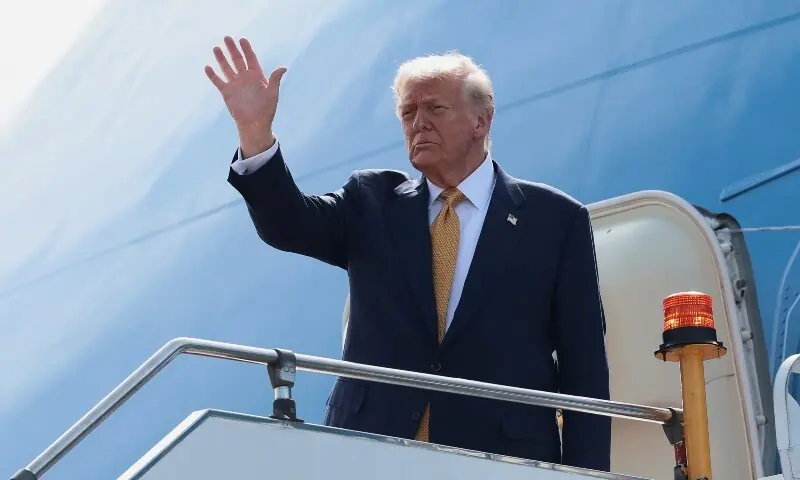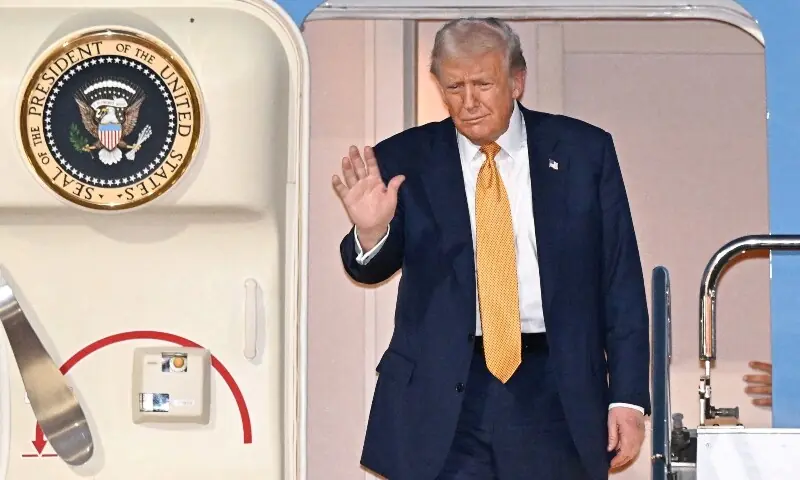President Donald Trump on Monday refused to dismiss speculation that he would seek a third term and said he had not considered whether he would go to court to challenge the two-term presidential limit set by the US Constitution.
Here’s a look at the legal barriers Trump faces.
What does the US constitution say?
The 22nd Amendment states in part: “No person shall be elected to the office of President more than twice.”
The amendment was ratified in 1951 after President Franklin D. Roosevelt broke the self-imposed two-term limit set by presidents since George Washington, the nation’s first.
Roosevelt, a Democrat who was president during the Great Depression and World War II, served a third term and then died months into his fourth term in 1945.
Wayne Unger, a law professor at Quinnipiac University, said the Constitution was clear that presidents are limited to two terms of four years each. He said that while that had not been proven in court, any challenge by Trump would likely be unsuccessful.
“I would predict that the Supreme Court would say no, it’s clear, two four-year terms, Donald Trump, you can’t run for a third,” said Unger, who teaches constitutional law.
Can Trump’s allies change the constitution?
Yes, but that is highly unlikely in an era of intense political polarization between Democrats and Trump’s Republican Party.
Any constitutional amendment would require the support of two-thirds of the House and Senate or a convention called by two-thirds of the states, and then ratification by 38 of the 50 state legislatures.
Republicans have a slim 219-213 majority in the House and a 53-47 majority in the Senate. Republicans control 28 state legislatures.
Andy Ogles, a Republican representative from Tennessee and a strong Trump supporter, proposed in January amending the 22nd Amendment to allow people to serve three non-consecutive terms as president.
Since Trump’s terms beginning in 2017 and 2025 were not consecutive, the amendment, if passed, would allow him to serve a third term beginning in 2029.
Could Trump run for vice president?
Trump on Monday dismissed the idea that he could run for vice president and then have the presidential candidate resign after taking office, which would return Trump to the presidency.
“I would be allowed to do that,” Trump said in an exchange with reporters aboard Air Force One as he flew to Tokyo from Malaysia.
But he added: “I don’t think people would like that. It’s too cute.”
However, Trump cannot run for vice president because he is not eligible to be president.
The Twelfth Amendment to the United States Constitution says: “No person constitutionally ineligible to the office of President shall be eligible to the office of Vice President of the United States.”









